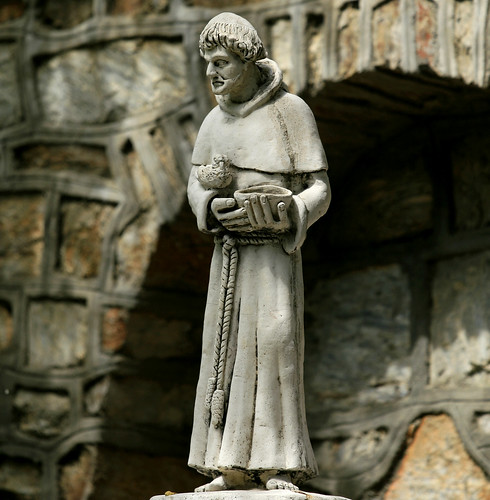Veritas

Hungry for that which keeps me craving more.
In spite of travelling and pupilage I have managed to finish off a few of the books that I bought last month. One of the few books being, Francis Collins', The Language of God. Although the book is only 300 pages long, it did take up a fair bit of time, due to the structure of the book and its content. He makes constant references to the works of Darwin, C.S. Lewis, Dawkins, Wilson, St Augustine and of course the Book of Genesis which results in constant cross referencing on my part. Nevertheless, I think he puts forward a very objective argument.
As some of you may know, I am not a literalist. I do not believe that the Bible and Genesis should be read literally. Some of my friends who are Young Earth Creationist (YEC) would say otherwise. I would direct them to Collins' reply to the YEC position. YEC belivers generally acecpt the idea of microevolution whereby small changes within species can occur by variation and natural selection (allowing for the explanation of virus mutations etc) but they reject the concept of macroevolution, the process that would allow one species to evolve into another. They argue that perceived gaps in the fossil record demonstrate the fallacy of Darwin's theory. YEC interprets the six days of creation as literal 24 hour days and concludes that the earth must be less than 10,000 years old. YEC advocates also argue that the 2nd law of Thermodynamics rules out the possibility of evolution and that radioactive dating of rocks and the universe is wrong because decay rates have changed over time.
Collins therefore writes that "Thus, by any reasonable standard, YEC has reached a point of intllecutal bankruptcy, both in its science and in its theology... By attacking the fundametals of virtually every branch of science, it widens the chasm between the scientific and spiritual worldviews, just at a time where a pathway toward harmony is desperately needed. By sending a message to young people that sciences is dangerous, and that pursuing science may well mean rejecting religious faith, YEC may be depriving science of some of its most promising future talents." He ends the chapter with a brilliant quote by Benjamin Warfield, a conservative Protestant theologian in the late 19th and early 20th century.
"We must not, then, as Christians, assume an attitude of antagonism toward the truth of reason, or the truths of philosophy, or the truths of science, or the truths of history, or the truths of criticism. As children of the light, we must be careful to keep ourselves open to every ray of light. Let us, then, cultivate an attitude of courage as over against the investigations of the day. None should be more zealous in them than we. None should be more quick to discern truth in every field, more hospitable to receive it, more loyal to follow it, whithersoever it leads"
I have read YEC material, courtesy of a friend, and I dare say that I have read it with an open mind. However, I still remain unconvinced because not only do their arguments fail to win over my rational senses, they also fail to silence the voice that echoes deep within me. And it is that voice of conviction that warns me against atheism. I trust that voice.

0 Comments:
Post a Comment
<< Home